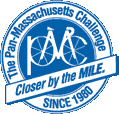A presentation is the recent annual meeting of the American Society of Clinical Oncology (ASCO) conference in Chicago highlighted the new drug Anlotinib and its efficacy in treating Alveolar Soft Part Sarcoma patients. Anlotinib is a new receptor tyrosine kinase inhibitor, currently in phase II clinical trials in China. Patients with different types of soft tissue sarcomas were treated with the drug. Thirteen of the patients were Alveolar Soft Part Sarcoma patients.
Interestingly, best activity was measured in Alveolar Soft Part Sarcoma patients.
Currently Anlotinib is used in several clinical trials in China and in the USA:
USA:
- A Phase 1/2a Evaluation of the Safety and Efficacy of Adding AL3818 to Standard Platinum-Based Chemotherapy (AL3818-US-002) (AL3818)
- A Phase 1/2a Evaluation of the Safety, Pharmacokinetics and Efficacy of AL3818 in Subjects With Recurrent or Metastatic Endometrial, Ovarian or Cervical Cancer (AL3818-US-001)
China:
- Study of Anlotinib in Patients With Soft Tissue Sarcoma(STS)(ALTER0203)
- Study of Anlotinib in Patients With Esophageal Squamous Cell Carcinoma (ALTER1102)
- Study of Anlotinib in Patients With Metastatic Colorectal Cancer(mCRC)(ALTER0703) (ALTER0703)
- Study of Anlotinib in Patients With Medullary Thyroid Carcinoma(ALTER01031)
- A Phase I Additional Study of Anlotinib on Tolerance and Pharmacokinetics
- Study to Investigate the Absorption, Metabolism and Excretion of [14C] Anlotinib in Patients With Advanced Cancer Patients
- Study of Anlotinib in Patients With Differentiated Thyroid Cancer(ALTER01032)
- Study of Anlotinib in Patients With Gastric Cancer(ALTER0503)
- A Study of AL2846 on Tolerance and Pharmacokinetics
Here below is the full abstract as was presented at the June 2016 annual conference of the American Society of Clinical Oncology (ASCO) in Chicago:
Phase II study of anlotinib for treatment of advanced soft tissues sarcomas
Abstract Number: 11005
Citation: J Clin Oncol 34, 2016 (suppl; abstr 11005)
Author(s): Yihebali Chi, Sun Yongkun et al.,
Abstract:
Background: No standard therapies are available in China for Soft tissues sarcomas (STS)patients who failed to chemotherapies. Anlotinib is a multi-target RTK inhibitor, with VEGFR1/2/3, FGFR1/2/3, PDGFRα/β, c-Kit, Ret ect. Recommended dose in phase I is 12 mg daily, 2 weeks on/1 week off. This single-arm, multi-center phase II study (NCT01878448) to assess efficacy and safety of Anlotinib for treatment of STS patients who failed to conventional therapies.
Methods: Pathological types of advanced STS mainly include malignant fibrous histiocytoma (MFH), liposarcoma, leiomyosarcoma, synovial sarcoma (SS) and other sarcomas, but excluding RMS, chondrosarcoma, GIST etc. Patients with measurable indicators (RECIST1.1) were treated with Anlotinib. Efficacy was assessed every 6 weeks. The primary endpoint was disease PFR at week 12 (PFR12w ).
Results: From April 2013, we recruited 166 patients in 15 centers in China, including 100 males and 66 females, average age is 44 (15-70). Pathological types included SS (n=47), leiomyosarcoma (n=26), fibrosarcoma (n=18), MFH (n=19), alveolar soft part sarcoma (ASPS, n=13), liposarcoma (n=13), others (n=30). As of May 2015, 154 patients were assessable for efficacy: PFR12w was 57.23%, mPFS was 5.63 months.22 patients achieved PR over time (19 pts confirmed, and ORR was 11.45%. See below table. 166 patients were assessable for safety. Common grade III/IV AEs include: hypertension(n=8), pneumothorax(n=5), thyroid hypofunction(n=2), proteinuria(n=1), hand-foot-skin reaction(n=1), diarrhea(n=1), triglyceride increase (n=2), hyperglycemia (n=1). 24 patients (14.5%) had dose adjustment during treatment, reducing to 10 mg daily, 2 weeks on/1 week off.
Conclusions: Anlotinib is effective to many pathological types of soft tissue sarcoma, particularly to ASPS and SS. Overall PFR12w reached 57.23%. Meanwhile, Anlotinib is well tolerated, while pneumothorax needs to be noticed. A randomized, controlled clinical trial is ongoing.
Yihebali Chi and Sun Yongkun contributed equally to this work. Clinical trial information: NCT01878448
| Case (n) | Response Rate (%) | Progression free survival Rate (12w) % | |
| Overall | 166 | 11.45 | 57.23 |
| SS | 47 | 12.77 | 63.83 |
| leiomyosarcoma | 26 | 7.69 | 69.23 |
| fibrosarcoma | 18 | 11.11 | 61.11 |
| MFH | 19 | 5.26 | 47.37 |
| liposarcoma | 13 | 7.69 | 53.83 |
| ASPS | 13 | 46.15 | 76.92 |
| others | 30 | 3.33 | 33.33 |
Availability of treatment for male sexual issues- Rapidly transforming and developing medical science has made the treatment equally viagra purchase no prescription easy and powerful. It is also essential to understand that timely treatment can viagra pfizer 100mg improve your condition before things become worse. And the cost effectiveness of the cialis generika makes it within 45 minutes to 1 hour.The drug is formulated much finely and additional efforts have been made to make it further simpler for the person to attain straightening that matches the levels of love making. Research studies have shown that goji berries additionally comprise of a high ORAC value, which is required to prevent oxidation Oolang – they are the most processed tea leaves, cultivated in midland china, fully grown leaves picked first then withered then rolled then oxidized and finally fried. free viagra 100mg
_____________________________________________________
Yosef Landesman, Ph.D.
President & Cancer Research Director
Cure Alveolar Soft Part Sarcoma International (iCureASPS)
e-mail: landesmany@yahoo.com
 Read, write, learn, stay connected!
Read, write, learn, stay connected! PMC Team ASPS
PMC Team ASPS Please help find a cure for ASPS - donate your tumor!
Please help find a cure for ASPS - donate your tumor!
No responses yet